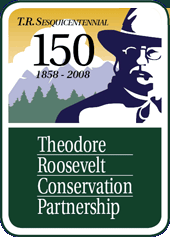Sportsmen Protest Federal Energy Leases in Utah
TRCP objects to proposed oil and gas development on critical fish and wildlife habitat, calls for revision of federal approach to public-lands leasing.

WASHINGTON – -(AmmoLand.com)- While promoting responsibly planned energy projects that sustain a range of public-lands uses, the Theodore Roosevelt Conservation Partnership today formally protested leases on more than 86,000 acres of federal lands in Utah, where development as proposed could negatively affect vast expanses of important habitat for game species, as well as hunting and fishing opportunities. A laundry list of fish and wildlife species jeopardized in the March 24 lease sale includes mule deer, elk, pronghorn, waterfowl, sage grouse and Gunnison grouse.
The massive sale constitutes close to 160,000 acres of Utah public lands and encompasses 15,000 acres overseen by the Bureau of Land Management’s Fillmore Field Office, where the agency’s proposal to forgo detailed environmental analysis in opening the region to energy development has drawn criticism from a range of diverse interests. The TRCP recently led a consortium of sportsmen’s groups in objecting to BLM plans to permit leases on more than 4 million acres following only a bare-bones environment assessment that fails to adequately analyze the impacts of drilling on the area’s trout and big-game populations.
“Utah’s federal public lands and their abundant fish and wildlife and hunting and fishing opportunities draw sportsmen from across the country,” said Joel Webster, TRCP’s associate director of campaigns.
Certainly, oil and gas development is an important use of these lands. But any development must be pursued carefully and be subjected to rigorous upfront planning if we’re to continue enjoying our shared natural resources. The leases slated for sale to the energy industry in March currently do not include these critical checks and balances.
Other leases protested by the sportsmen are located in Utah’s popular Book Cliffs big-game hunting unit and in areas northeast of Monticello inhabited by mule deer, elk and Gunnison grouse. Gunnison grouse have suffered a 90-percent loss in historic habitat, and only eight extant populations of the birds remain.
“Current science demonstrates that Gunnison grouse populations are negatively affected by habitat loss and fragmentation, including areas used for breeding, nesting and brood rearing,” Webster continued. “Sportsmen want to see populations of these birds sustained and restored so that they continue to be classified as a game bird instead of ending up on the endangered species list. Oil and gas development as planned, including the protections proposed for the parcels up for sale, will not facilitate recovery of the Gunnison grouse – and it could contribute to the species’ further decline.”
“We have diligently examined energy development on public lands firsthand,” said TRCP Energy Initiative Manager Steve Belinda, “and we have concluded that the federal approach to oil and gas development does not work to sustain fish and wildlife resources at acceptable levels. Furthermore, it limits the range of multiple uses for public lands that our government is legally mandated to uphold.”
Recent events in Utah – the controversial December lease sale, the debacle over environmental analysis currently playing out in the Fillmore Field Office – only confirm that our system is broken. Sportsmen have a stake in fixing it.
“Interior Department Secretary Ken Salazar has stated that we need a new, comprehensive energy plan for public lands that upholds our fish and wildlife heritage,” concluded Belinda. “Hunters and anglers wholeheartedly agree. We offer our assistance in crafting this new approach and our support of efforts to more responsibly administer America’s shared natural resources.”
The TRCP believes that to better balance the concerns of fish and wildlife in the face of accelerating energy development, federal land management agencies must follow the conservation tenets outlined in the FACTS for Fish and Wildlife.
About:
Inspired by the legacy of Theodore Roosevelt, the TRCP is a coalition of organizations and grassroots partners working together to preserve the traditions of hunting and fishing.
